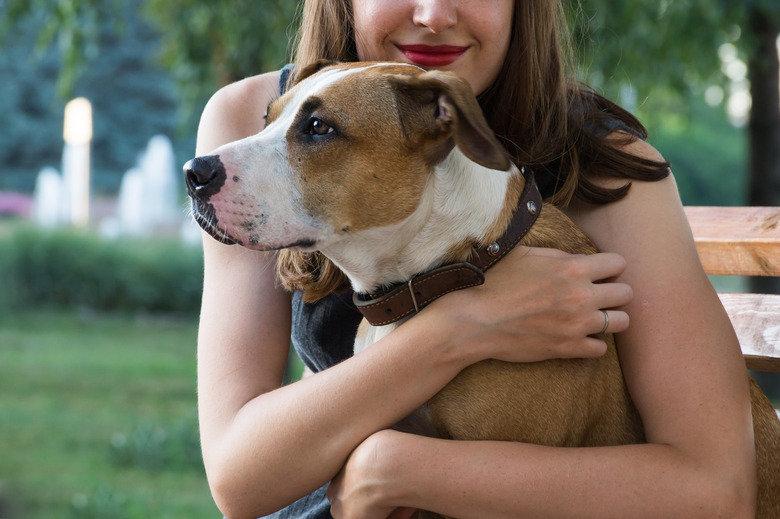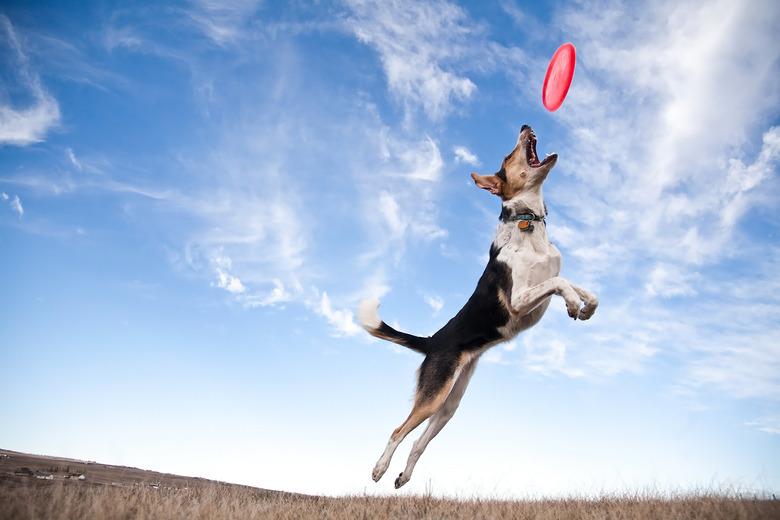7 Mistakes That Are Making Your Dog Depressed
Wondering why your dog is looking a little downcast lately? If he seems listless, is sleeping more than normal, or has lost interest in playing or going for walks, he may be suffering from depression. Other signs of depression include changes in appetite, restlessness, aggression, or suddenly starting to soil inside the house. Trying to pinpoint the cause of your dog's funk can be a challenge, but you can get to the bottom of it.
Maybe you've been unhappy recently, and your sadness has rubbed-off on your dog, who is keenly in tune with your emotions. Or maybe your dog's sadness is caused by changes in the household, or something lacking in his life.
But we have good news: in many cases, you can help your dog recover from mild depression with some simple changes in your routine.
Here are seven mistakes dog owners make that may be at the root of their dog's depression, and some lifestyle adjustments you can easily make to get that tail wagging again.
1. Not giving enough attention and affection.
1. Not giving enough attention and affection.
Is your dog feeling lonely? Does she need a little TLC? Attention and affection can be mood-boosting for both you and your dog.
- Spend quality time together.
- Groom and pet your dog more often.
- Talk to your dog; she loves the sound of your voice.
2. Not providing sufficient mental stimulation.
2. Not providing sufficient mental stimulation.
Your dog is smart and requires sufficient mental stimulation to be a vibrant family member. Providing mental stimulation is important for all dogs, but especially for working and herding dogs like border collies, Australian cattle dogs, and German shepherds.
- Games that incorporate training such as short sessions of basics like, sit, down, stay stimulates thinking.
- Teach new fun, tricks, like speak, twirl, or high-five.
- Teach your dog the names of her toys and then have her put them away when you call out the toy's name.
- Play hide and seek in your yard or a park.
- Buy food puzzles and games.
- Join an online community like Dognition where you can participate in lessons that help you understand your dog's mind and find the genius in your dog.
- Change up your route when you go walking.
3. Not providing enough physical exercise.
3. Not providing enough physical exercise.
One of the primary causes of boredom and depression in dogs is a lack of quality exercise. Consider fitting in a good hour of exercise for your pooch every day, depending on your dog's unique exercise requirements. For example, a Pomeranian will need less exercise than a Labrador retriever. You'll be adding immeasurably to his quality of life and overall health, and benefiting yours, as well.
- Longer walks, or hiring a dog walker if you don't have the time
- Frisbee or fetch/catch
- Rally obedience or flyball if your dog is up to it
- Hiking
- Brisk heeling exercises in the park around trees
- Swimming
- Lure coursing, a dog sport in which sight hounds excel but can be enjoyed by any dog. It can be competitive or non-competitive, and the dogs chase a mechanical lure — no animals are harmed.
- Running your dog up and down the stairs (as long as you are both are in excellent physical health with no bone or joint issues)
Use your imagination to think of other interesting ways to get exercise with your dog!
4. Not offering enough social time.
Social time or socializing with others is good for everyone, including your dog. Making new friends or visiting with old ones is life-affirming for social dogs.
- If your dog gets along well with other dogs, take her to the dog park as often as you can.
- Throw a dog party and invite all your friends and family and their dogs for an afternoon of socializing and yummy treats.
5. Not providing structure or rules.
5. Not providing structure or rules.
Your dog is tired of having to make all the decisions. Pulling on the leash during walks and generally misbehaving takes a lot of energy out of your dog. Providing structure for your dog in the form of boundaries, limitations, and a few solid rules are good for your dog's peace of mind (and yours, too).
Inconsistent or erratic behavior from an owner can stress and depress a dog. When you're confident and sure of yourself as the one calling the shots, your dog will be more calm and relaxed. You both need to be on the same page about the house rules.
Obedience training for basic commands can be a fun and rewarding outlet for your dog. It provides structure in his life and is an invaluable tool in the human-dog relationship.
6. Shouting or being domineering.
6. Shouting or being domineering.
No one wants to be yelled at, especially your dog; she has ultra-sensitive ears. And no one wants to be dominated, intimidated, or treated unfairly. Dogs are usually enthusiastic and willing to learn, and most have an innate desire to please. When you respect your dog, she will respect you. Never shout, use physical force, or harshly reprimand a dog. Your interactions should always be positive. Positive reinforcement training methods are proven to be the most effective means of training a dog. If you need help, consult a professional dog trainer who uses positive training methods.
7. Leaving your dog alone too often or for too long.
7. Leaving your dog alone too often or for too long.
Life gets busy, and some people work long hours. If your dog is left home alone too long or too often, he may misbehave and fall into a depression. Consider making a few changes to ensure he is not alone the majority of the time.
- Hire a dog sitter or ask a friend to keep him company when you're not around.
- Get another dog to keep him company (if you're able).
- Try to change your schedule so you can spend more time with your dog.
Life can get hectic; perhaps it's been difficult for you to find enough time for your dog lately. The good news is that by making some changes in your routine, you can get your happy, bright-eyed best friend back in the swing of things.

